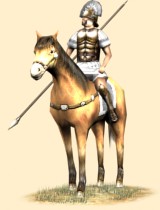
In battle, the Seleucids have access to a wide-ranging roster as such, they can field capable, balanced and incredibly diverse armies and navies.After seeing some guides out there, I decided to make one of my own. As a heavily multicultural society, they also suffer less from public order issues arising from foreign cultures entering their territories. But where? Into Ptolemaic Egypt? Or beyond, to Alexander’s former western empire in Greece and Macedon? Influenced by their cultural assimilation of eastern culture, The Seleucids have little tolerance for the concept and practice of slavery. The territory under his control contained a diverse range of eastern subcultures, which rapidly became Hellenized by the ruling Macedonian elite and a flood of Greek settlers.ĭespite a sometimes precarious position at home, the Seleucids now plan to expand. Fielding 500 war elephants, gained through negotiating peace on his eastern border with the Emperor Chandragupta Maurya, his forces proved decisive. Seleucus sealed his overall victory at the Battle of Ipsus in 301 BC. During the turmoil of the Wars of the Successors, the Seleucids were able to claim and expand Alexander the Great’s eastern empire, as well as parts of Asia Minor.



Ever the opportunists however, the Seleucid kings may yet turn the tables, bringing much of Alexander’s former western empire under their sway.įounded by Seleucus Nicator, or Seleucus the Victor, at its height the vast Seleucid Empire stretched from western Anatolia as far east as the Indus River. As the campaign begins, such measures are a necessity when faced with the continuing threat from their Ptolemaic Egyptian neighbours and upheaval among the Seleucid's satrapies.


 0 kommentar(er)
0 kommentar(er)
